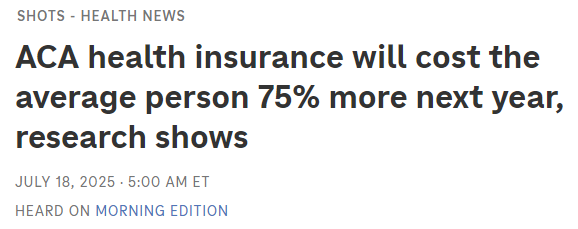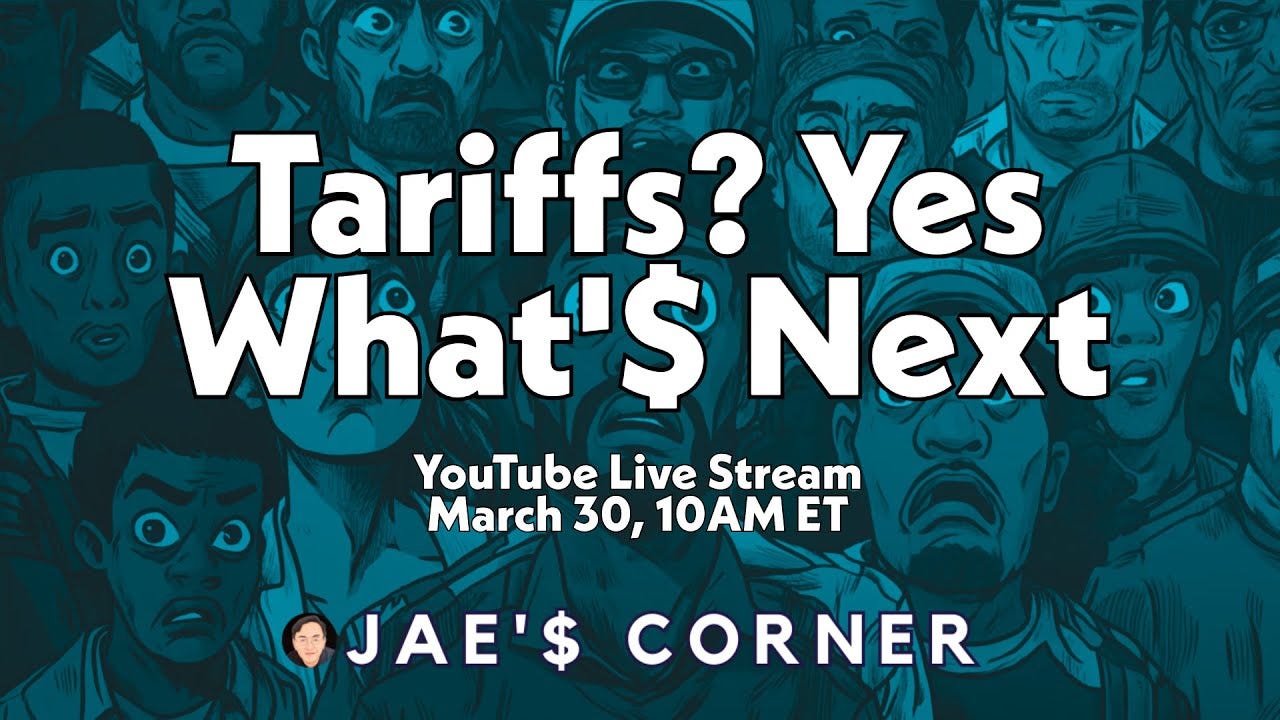NPR Understates the Effect on the ACA (Obamacare)
To put it bluntly, this is too low. For some, 300% higher, and more, is entirely possible.

Easy example. Let’s say you are married, both 60 years old, you make $75,000 a year in Chicago IL. This is your APTC, lowering your health insurance premium, if you retired/lost your job, today.

Let’s say you choose this plan (hypothetical, typical example).

Your “sticker price” is actually1411.32, you are receiving $1212 as a tax credit, running, to lower your health insurance premium, to $199.32.
However, in the absence of the $1212/month credit, you have to pay the full $1411.32. I intentionally used the least expensive premium, so choosing a less expensive plan is not possible.
Now fast forward to January 2026. Current projections are double-digit percentage increases in premium. In MI, my home state, BCBS has filed for 2026 already, and 10% is too low. Let’s try to not be alarmist.
So $1411.32 * 110% = $1553 / month. The enhanced tax credit is disappearing as a result of the OBBBA (One Big Beautiful Bill Act). Your premium can increase from $199.32/month this year, to $1553/month next year. Even if this is a very rough estimate, that is many times larger than simply 75%.
Why It’s Going to Be More Difficult
Yes, there are even more layers, beyond the sticker shock. There is no easy way around this.
a. COBRA vs ACA will be more difficult because COBRA “might be” the most efficient, due to cost. This can reverse the idea that “COBRA is always overpriced.” That will depend on the cost of COBRA in the future, and the complicated effects I described in the prior paragraphs.
b. This means that planning must be done every year. For Comprehensive Financial Planning clients, this has always been part of the equation. A financial plan starts with the question: “how much does it cost you to keep the lights on?”
c. This is a nice way of me saying “Toldya, we need to be active and aggressive, if the opportunity presents itself.” If you can save $1000 in a year, you should always do it. The common sense reason: you do not control certain costs. I have receipts (a thick stack of them, candidly). I don’t have a crystal ball, I didn’t need one. This one did not take any predictive power whatsoever (press the image to watch the video on YouTube).


Referral Special
Very simple and obvious. You refer a friend/neighbor/relative, the friend keeps a scheduled appointment/call, you get a free month to the Premium Content. That person has no obligation to become a client.
a. Information that I cannot share in public. I explained this to a couple, during our first video call. I don’t worry about what I am stating in the public eye. I worry about the public misunderstanding, and then wrongly twisting it into the idea that I am being misleading. For example, some people believe that this newsletter has a political agenda. That is a funny (not funny) thought. The sole agenda is to attach your common sense, to solve a financial knowledge crisis. The problem is that the noise is so loud, it gets in the way of you understanding money. Some of that is your fault, some of that is not. I simply don’t care how/why we got here: we the need best-possible answers, now.
Look at the prior article, the horror that will occur to many, in 2026, has already addressed, for our Comprehensive Financial Planning clients.

b. Recordings of Medicare ABCs, the comprehensive explanation that I have given about Medicare. Again, there is material that doesn’t exist in the publicly available recordings or material that I have posted, even on YouTube.
Simply send an email to info@gh2benefits.com, with your name included. Note that this is a manual process
#NPR #Understates #Effect #ACA #Obamacare